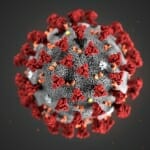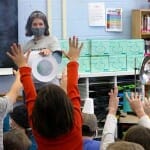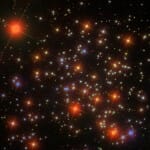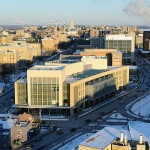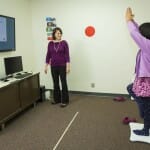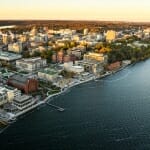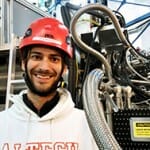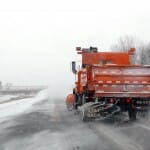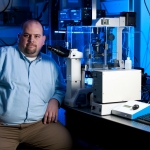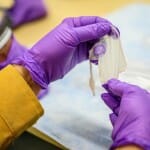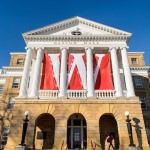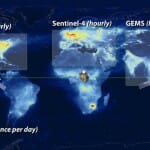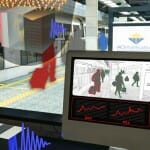Category Science & Technology
Researchers seeking study participants to lose weight — by phone
Log2Lose, an 18-month study, aims to help people build habits for a healthier lifestyle by sending them motivational text messages and providing an app to keep track of what they eat.
Video: From weather to wonder
The Wonders of Physics traveling show is back in action at schools and public events. It is now presented by UW–Madison outreach specialist Haddie McLean, a former TV meteorologist. In this video, she visits Pecatonica Elementary School.
Balancing personal and community risk with the omicron variant
Devlin Cole of the UW School of Medicine and Public Health says, "Wear a mask, get vaccinated and boosted … you can still go out and do the things you want to do, but it’s going to take a bit more planning."
Video games teach balance, reduce symptoms in autistic adolescents
Waisman Center researchers hope to identify outcomes of balance training that will be meaningful to autistic adolescents and contribute to their quality of life.
Grant provides lifesaving pet cancer treatments at UW School of Veterinary Medicine
“With all the strides being made in the veterinary oncology field increasing treatment options for pets, our goal is to make these lifesaving treatments available to more pets and their pet parents.”
UW astronomer tracks galaxies’ “growth spurts” using the new James Webb Space Telescope
Using powerful telescopes and spectroscopy, Michael Maseda studies images of hundreds of galaxies, trying to answer some of the thorniest questions about how they began.
Flexibility may be the key to potent peptides for treating diabetes
New research suggests that the peptides — short chunks of protein — used to treat Type 2 diabetes may be more effective if they’re able to flexibly move back and forth between different shapes.
Study finds that not even the largest lakes in the world are safe from salt
Researchers used water quality data and computer models to analyze the amount of salt being carried into Lake Michigan by 234 different tributaries, from major rivers to tiny streams.
By citations, UW–Madison faculty demonstrate strong impact
Seventeen researchers from UW–Madison were recently recognized on the 2021 Highly Cited Researchers list, published annually by the analytics company Clarivate using data from Web…
Pandemic-Affected Research Continuation Initiative funds 50 new proposals
PARCI provides support through the Wisconsin Alumni Research Foundation for research projects that had to spend down grants during the pandemic even though the research activities themselves were stalled.
Two UW–Madison teams chosen 2021 WARF Innovation Award winners
Researchers who created a device for detecting explosives and a cross-disciplinary group working at the frontiers of medicine and nanotechnology have taken top honors from the Wisconsin Alumni Research Foundation.


